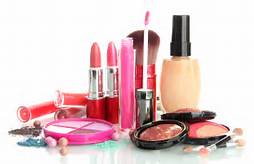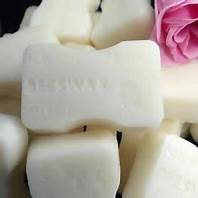Everything A Trichologist Wants You To Know About Caring For Your Scalp











Everything A Trichologist Wants You To Know About Caring For Your Scalp
Let's talk scalp care. What does your everyday haircare routine look like? For many it's a quick shampoo and rinse, a dollop of conditioner et fin. Beauty product sales figures, though, now suggest that the tide is turning. Haircare buys like serums, toners, oils, masks and even scrubs are becoming ever more popular and the reason? A heightened interest in hair health and scalp care.
Getty scalp health
Now, more than ever, our scalps are in the spotlight. A new generation of sophisticated products specifically formulated to treat the skin on our heads have hit the market, and consumers are buying them. Take Head & Shoulders, for example. The brand's latest release - their Derma X Pro range - is made with well-known skincare ingredients including aloe, vitamin E and hyaluronic acid. Each product is made to help reinforce your scalp's natural skin barrier and improve moisture retention. Shop the Head & Shoulders Derma X Pro range here.
Cult Beauty has seen sales of scalp treatments increase by a staggering 421% year on year. ‘Consumers understand that the skin on their head doesn’t stop at the hairline,’ says Alexia Inge, co-founder of Cult Beauty, ‘we are all "skintellectuals" now, but we’re looking to become expert "trichologistas" too!’
Consumers understand that the skin on their head doesn’t stop at the hairline
Enter the ‘skinification’ of haircare. Brands like The Inkey List, Drunk Elephant, Grow Gorgeous and Dr Barbara Sturm have all expanded their remit to include scalp-savvy staples. ‘My haircare line is really all about the scalp, and that’s a direct extension of the same skin-first philosophy that has resonated so well with my customer,’ says Tiffany Masterson, founder of Drunk Elephant. ‘The focus of the haircare industry seemed to be centred on making hair smoother, shinier and nicely scented. But the thing is – hair is dead. You can make it appear healthy, but you can’t actually make it healthy, except for down at the root.’
Why Is It Important To Treat Your Scalp?
'Your scalp is the bedrock of your hair follicles,’ adds Anabel Kingsley, consultant trichologist and brand president at Philip Kingsley. ‘If you think of each hair as a flower, and your scalp as the soil supporting it, it makes complete sense to nourish and care for your scalp.’ And this applies to every scalp – whether it’s dry, irritated, or generally happy. The scalp is an extension of our skin. ‘It sweats, secretes sebum and sheds dead skin cells,’ says Anabel. ‘It also faces daily attacks from our environment and lifestyle so can easily become unbalanced.’
How To Up The Scalp Care Ante
Step 1: Exfoliate
Regular, gentle massage and exfoliation is beneficial from top to toe. ‘For the scalp – flaking, redness and excess oil can be alleviated with regular exfoliation,’ says Tiffany. ‘It removes the top layer of dry, dead skin as well as product build-up for a smooth, fresh surface and barrier to the elements,’ says Ricardo Vila Nova, hair expert and trichologist. ‘It’s also a good way to empower the absorption of treatments and tonics that follow.’ Use a scrub once or twice weekly, before shampoo.
Step 2: Cleanse And Condition
Anabel recommends daily shampooing if you have a scalp condition, such as dandruff or seborrheic eczema. ‘It’s also important if you have fine hair, as this hair texture has more sebaceous glands and quickly becomes oily at the roots.’ For those of us with coarse, long or thick hair types – you can leave it a little longer before washing your hair but no more than three days between shampoos. ‘Doing so is likely to cause itching and flaking – and a flaky scalp can cause hair loss.’ Post-shampoo, apply your go-to conditioner before rinsing out.
Step 3: Toner
A toner (otherwise known as a leave-in treatment) might sound like a scalp care step too far, but according to the pros it’s an essential product to clean and clear the skin in between washes. ‘It’s a really good step in your routine to get an active product onto your scalp that you can leave on,’ says tricologist Lisa Caddy. ‘A toner will close the pores, reduce oil production and won’t leave your hair feeling sticky or tacky as they’re mainly water-based.’ What’s more, depending on the active ingredients in your chosen toner, you can soothe, exfoliate or stimulate the scalp.
Step 4: Treatment
‘Treatments are a huge support for the hair – making it stronger and healthier,’ says Ricardo. Anabel recommends extending that self-care Sunday skincare ritual to your hair and applying a weekly intensive scalp mask as well as a conditioning hair mask.
Step 5: SPF
And finally, the skincare step we would never forgo – sunscreen. ‘Your scalp can burn, peel and become really sore and sensitive from prolonged sun exposure,’ states Lisa, ‘particularly around the hair line and parting.’ Apply a sun-protective spray, like Clarins Sun Care Oil Mist SPF30, £22, that doubles up for hair and body, liberally, to lightly coat each strand. ‘On holiday, by the beach or pool, you get the best protection from using a water-resistant moisturising cream that contains UV filters,’ says Anabel. Try Philip Kingsley Swimcap Water Resistant Mask, £19, to protect from sun, sea, water and chlorine.
Reference: Grazia Contributor
Articles-Latest
- Skin tags: Why they develop, and how to remove them
- So That’s Why Your Skin Gets Crepey As You Get Older
- Eye Infection from False Eyelashes
- Teeth stain removal and whitening solutions
- Benefits of collagen for skin
- Why vitamin E should be part of your skincare regime
- Can gray hair be reversed?
- Hair loss affects 1 in 10 women before the menopause – here’s how to treat it
- Conscious ageing and Black skin: What happens when Black does crack?
- Your skin color may affect how well a medication works for you — but the research is way behind
- The C word Cancer
- Astringents
- How does light therapy work? The science behind the popular skincare treatment
- The Most Offensive Fashion Police Criticisms of All Time
- Everything you need to know about lip filler migration, as told by the experts
- Pig semen and menstrual blood – how our ancestors perfected the art of seduction
- Everything you need to know about benzoyl peroxide
- We've bleached, relaxed, and damaged our hair to make ourselves look more white
- Will this be the year that facial filler is cancelled?
- Shock of the old: 10 painful and poisonous beauty treatments
Cosmetic ingredients
LOGIN
Who's On Line
We have 98 guests and no members online
Articles-Most Read
- Home
- White Bees Wax
- Leucidal
- Cosmetic Preservatives A-Z
- Caprylyl Glycol
- Cosmetics Unmasked - How Safe Are Colorants?
- Cosmetics Unmasked - Choosing Ingredients
- Cosmetics Unmasked - Colorants And Fragrances
- EcoSilk
- Toxic Beauty - Who's Looking At Cosmetics?
- Cosmetics Unmasked - Fragrances
- Microbes and Cosmetics
- Chemicals Lingering In The Environment
- Microbes and Safety Standards
- Yellow Bees Wax
- Potassium Sorbate
- Toxic Beauty - Hazardous To Your Health
- What's Happening in the USA - Cosmetic Regulations - Toxic Beauty
- Synthetics In Cosmetics - The Industry Fights Back
- Fresh Goat's Milk Soap
- Active Ingredients
- Cosmetics Unmasked - Listing Cosmetics
- Toxic Beauty - Cocktails and Low Doses
- Natural Waxes A-Z
- Natural Butters A-Z




